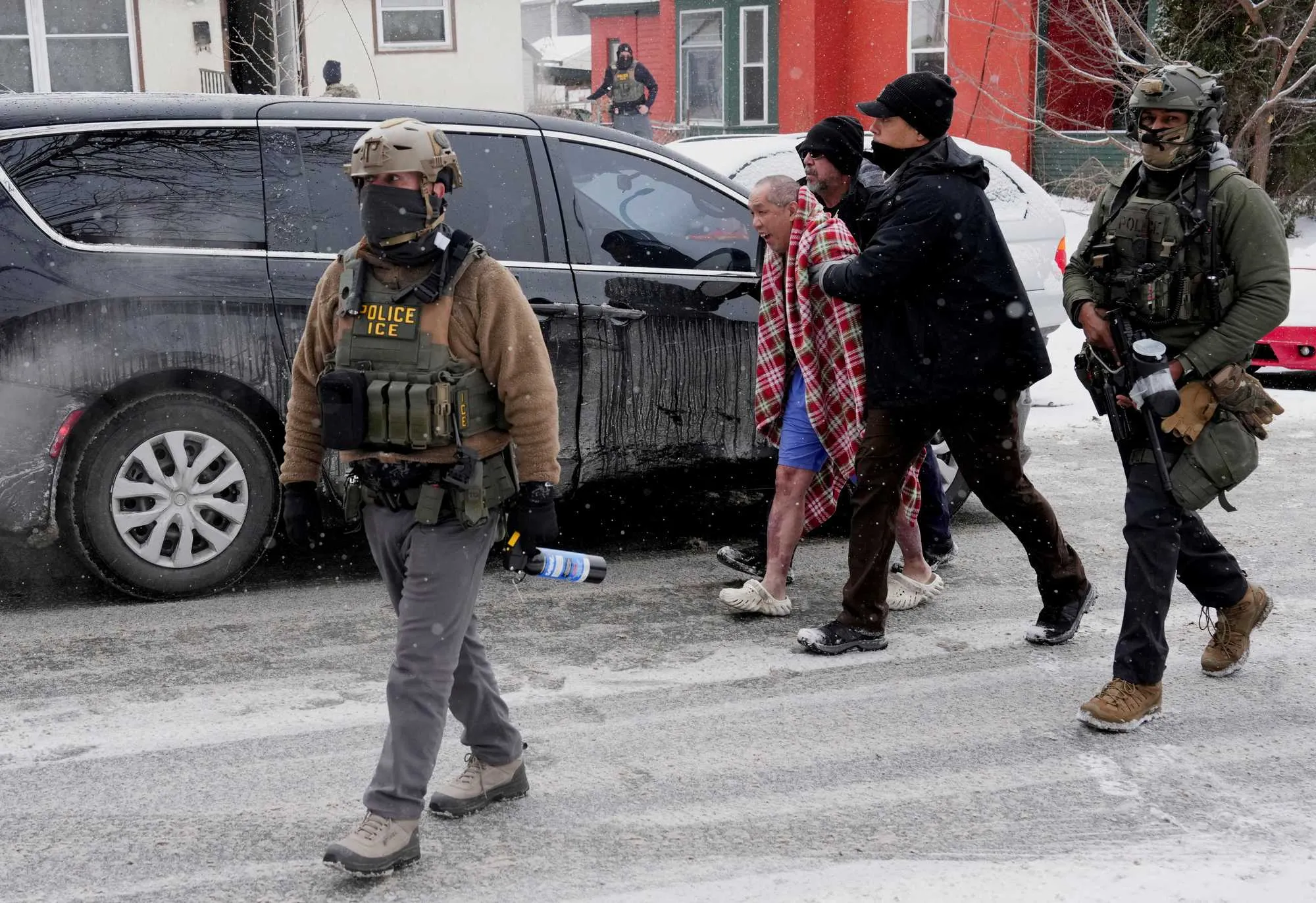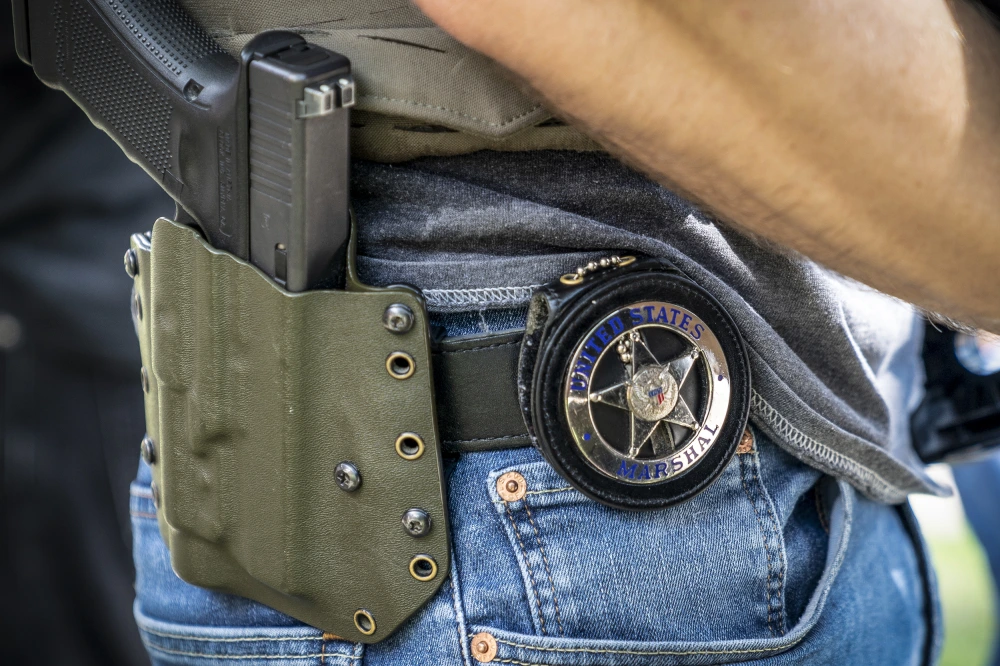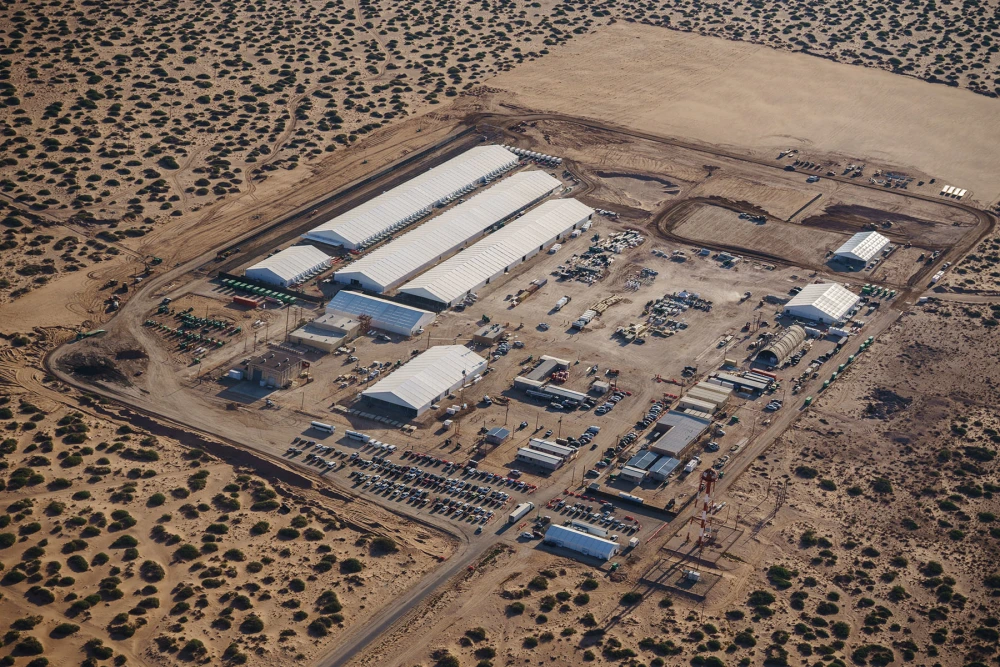‘Extremely cruel’ attacks kill at least seven in Kharkiv; Blinken told to get rid of ban on Ukrainians firing US weapons into Russia. What we know on day 821
Russian jamming has kept many of Ukraine’s relatively new long-range GLSDB bombs from hitting their intended targets, three people familiar with the problem have told Reuters. The Boeing and Saab-made ground-launched small diameter bomb has a 161km range. It launches with a rocket motor and then wings pop out to extend its range. But its guidance system has been targeted by Russian jamming that its makers are struggling to counteract.
Russian missiles killed at least seven civilians in Kharkiv on Thursday, officials said. At least 20 people were wounded as S-300 missiles struck, said the regional governor, Oleh Syniehubov. The Ukrainian president, Volodymyr Zelenskiy, called the attack “extremely cruel” and expressed renewed frustration at not getting enough air defence systems from western allies.
Russian missiles struck the town centre in Liubotyn, about 10km (6 miles) west of the city of Kharkiv, wounding eight civilians. In Derhachi, another nearby town, 13 people were wounded in another aerial strike, authorities said.
Russian troops have made incursions in the northern Sumy region where nearly 1,500 people, including 200 children, have been evacuated from the towns of Bilopillia and Vorozhba, according to the regional governor, Volodymyr Artiukh.
In the US, the House foreign affairs chairman, Michael McCaul, has told Joe Biden’s secretary of state, Antony Blinken, during a congressional hearing that the Biden administration needs to lift the ban on Ukraine’s military firing US-supplied weapons across the border into Russia, from where attacks on Ukraine are launched. “They cannot achieve victory with the restrictions you placed on them,” McCaul said.
The Texas congressman displayed a map of Russian artillery, rockets and missiles lining the Russian side of the border in a “sanctuary zone” that Ukraine is not allowed to hit with American heavy weaponry in self-defence. Blinken replied that the administration was not “enabling or endorsing attacks outside Ukraine … but Ukraine will have to make, and will make, its own decisions and I want to make sure it gets the equipment it needs to effectively defend itself”.
The head of the Russia-annexed Crimea peninsula said a Ukrainian missile attack killed two people near Simferopol, the main administrative centre. Ukrainian military bloggers and unofficial media reported a number of targets were hit throughout the peninsula. News outlet RBK-Ukraine reported, without citing a source, that targets could have included headquarters for the coastguard or intelligence centres. The Guardian has not been able to independently verify these reports.
Russia’s defence ministry said on Thursday that Ukrainian rockets and drones attacked the Belgorod region. The regional governor, Vyacheslav Gladkov, said a woman was killed.
Poland and Greece have called for the EU to create an “air defence shield” against Russia. “Europe will be safe as long as the skies over it are safe,” Poland’s prime minister, Donald Tusk, and his Greek counterpart, Kyriakos Mitsotakis, wrote in a letter to the EU chief, Ursula Von der Leyen, calling for “a comprehensive air defence system to protect our common EU airspace against all incoming threats”.
Russian authorities have arrested a general and high-ranking defence official, Vadim Shamarin, deputy head of Russia’s general staff, on corruption and “abuse of power” charges. The Kremlin denied it was carrying out a purge of top army officials, but some of Russia’s influential military bloggers welcomed the arrest of a general they hold responsible for battlefield failures in the two-year offensive in Ukraine. Critics and opposition figures have for years said Russia’s military is riddled with corruption, although when things are going well on the battlefield, military leaders rarely face any serious probe or retribution.
Ivan Popov, an ex-commander who was sacked after he criticised Russia’s military leaders for a high casualty rate in Ukraine, was arrested this week. US thinktank the Institute for the Study of War said: “The Kremlin is likely using the pattern of recent arrests of high-ranking officials on corruption charges in the Russian MoD to conceal the real reasons for Popov’s punishment almost 10 months after his conflict with the Russian military command and subsequent dismissal from his command position.”
Russia’s investigative committee also recently announced the arrest of Vladimir Verteletsky, a defence ministry official; a deputy defence minister, Timur Ivanov; and the head of the ministry’s personnel, Yuri Kuznetsov.




